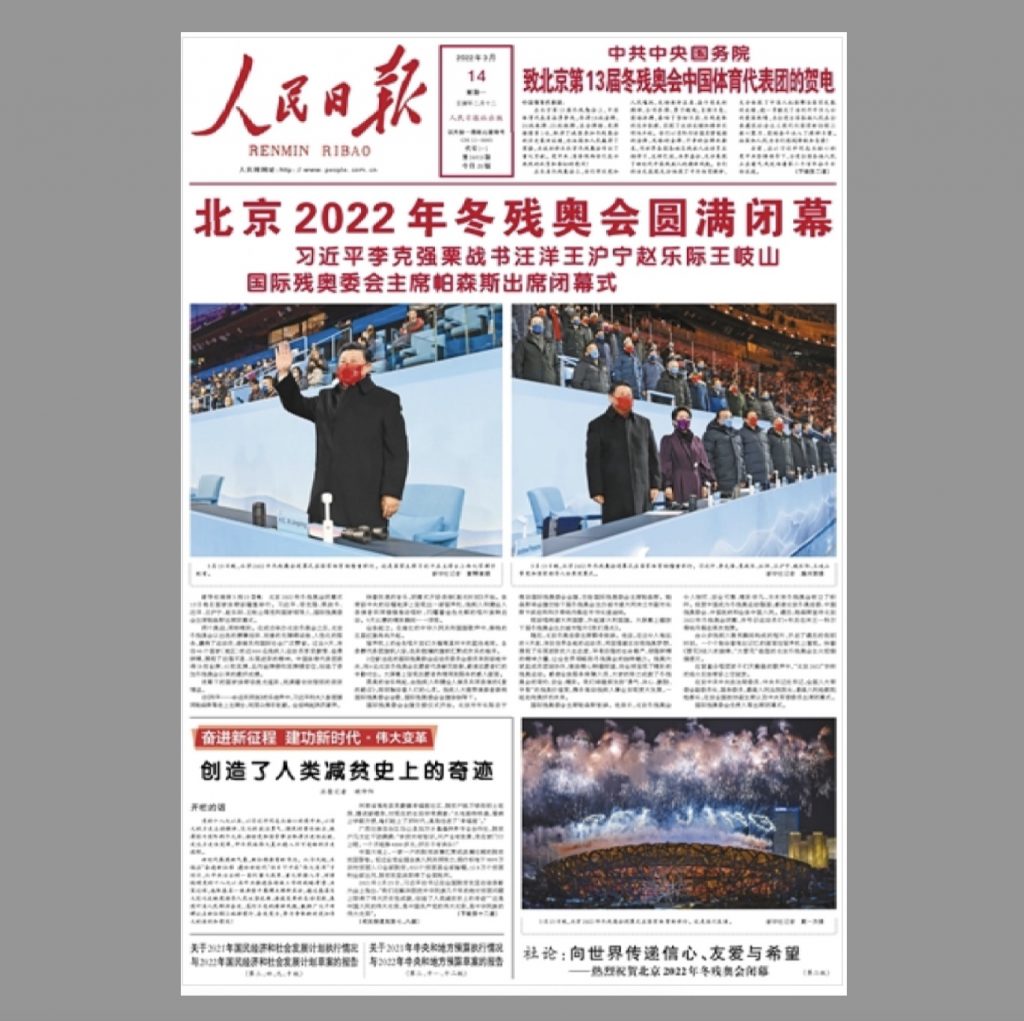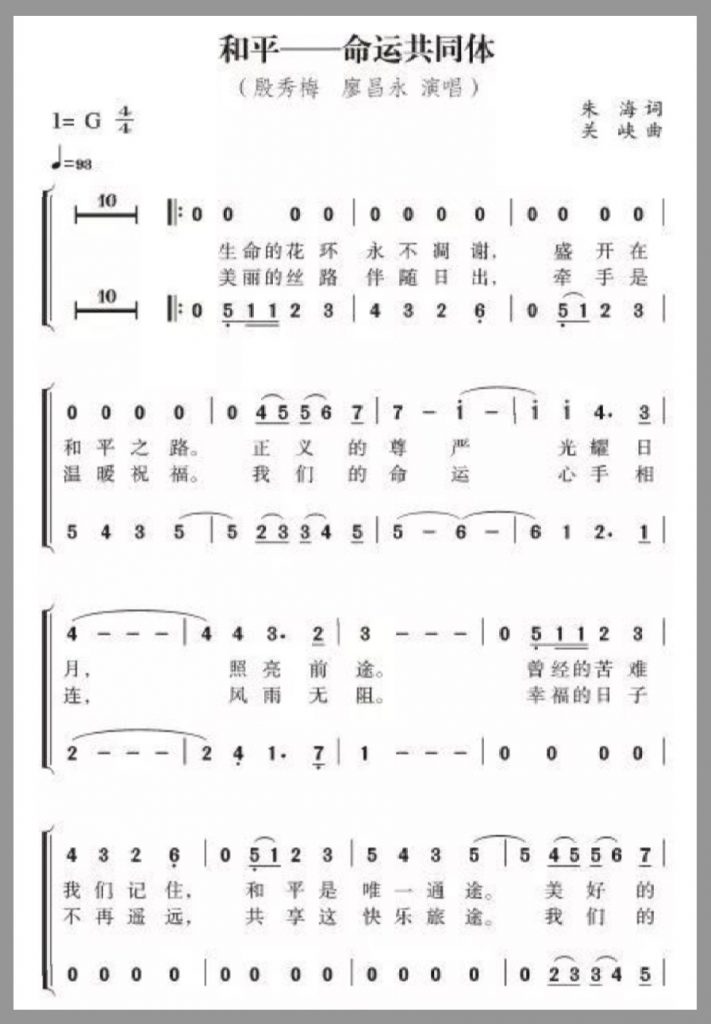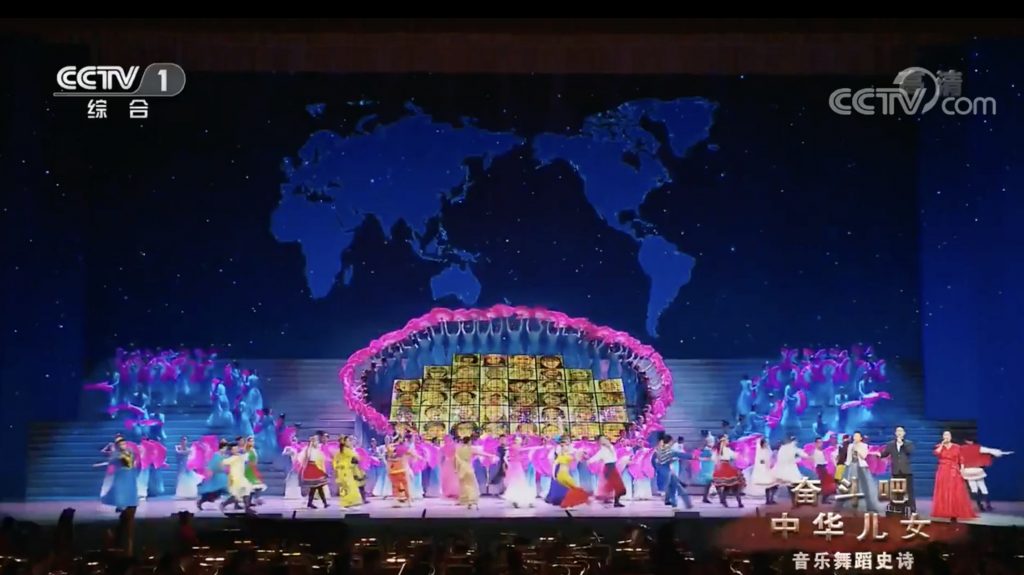
As cities in Ukraine are reduced to scenes of devastation, and as Russian forces step up their deadly assaults in the country’s west, one might think the closing ceremony of the Beijing 2022 Paralympic Winter Games on Sunday would have little hope of making today’s headlines. But the Games are the major story, and the only story, on the front page of the People’s Daily newspaper today.
This is the day’s top news on a day when US national security adviser Jake Sullivan is in Rome for talks with China’s top foreign affairs official, Yang Jiechi (杨洁篪), that could have a dramatic impact on the course of events in Europe, and for the world. This is the news as there are reports that Russia has asked China for military equipment to support its war against Ukraine, a request that is sure to be discussed at the Rome meeting.

On the one hand, the People’s Daily page is a portrait of the acute myopia and chronic tone deafness that prevails at the Chinese Communist Party’s flagship newspaper. On the other hand, the page does convey important information. It serves as a reminder, at this key juncture for US-China relations and the war in Ukraine, that the top-most priority for China’s leadership this year is the 20th National Congress, which is expected to seal Xi Jinping’s dominance as leader of the Party.
To a great extent, China’s internal power politics, and how Xi Jinping chooses to understand and define his own leadership prospects, will define the prospects for broader peace.
In the main article on the closing ceremony of the Paralympic Winter Games, Xi Jinping and the other six members of the Politburo Standing Committee, all in attendance, are primary. They are announced in the first paragraph, right at the start of a listing out of the glorious successes of the host country, of China’s 18 gold medals, of the music and fireworks of the ceremony itself. And they round out the article too:
Fireworks with the words “Beijing 2022” bloomed over the stadium amidst the heavenly singing of the children of the blind children’s choir.
Members of the Politburo of the CCP Central Committee, the First Secretary of the Central Secretariat, the Vice-Secretary of the National People’s Congress Standing Committee. . . . and members of the Central Military Commission attended the closing ceremony.
There is no talk whatsoever of the challenges facing the world, of the need for peace, or even of the “Olympic spirit.” There is mention of the address given by International Paralympic Committee President Andrew Parsons, who reportedly called the Games “amazing, safe and reliable, wonderful and extraordinary.” But there is no mention of the faint hint in Parsons’ address of the troubles facing the world: “During the darkest of times,” he told the athletes, “your performances shone brightly.”
A separate article right next to the masthead reported a congratulatory note sent by China’s State Council to China’s Paralympic athletes. It said that the athletes had “fully demonstrated the results of China’s human rights protection and national development.” But the article concluded, predictably, with a focus on the glories of the CCP under Xi Jinping, and mention of Xi’s “banner term,” or qizhiyu (旗帜语), marking his legacy:
At present, under the strong leadership of the Party Central Committee with Comrade Xi Jinping as the core, the whole Party and the people of all nationalities are moving forward with vigor toward the second centennial goal. We hope that you will all, with Xi Jinping Thought on Socialism with Chinese Characteristics for the New Era as your guide, carry forward the glorious tradition of sports for people with disabilities . . . .
Even on such a day of reckoning for peace in our world, power signaling about Xi Jinping’s status is the primary and core concern of the CCP. The front-page news in the People’s Daily gives us an image of Xi standing, an image of Xi waving – but nothing whatsoever to indicate what, behind his red mask, Xi Jinping might be thinking or planning.
“We meet on the path of peace”
If there was any reference to the world in the closing ceremony of the Beijing 2022 Paralympic Winter Games, it seems to have been the anthem that boomed out as “the national stadium at night was glittering” and Xi Jinping walked to the podium, along with his wife, Peng Liyuan (彭丽媛), and members of the Standing Committee.
The anthem, “Peace: Community of Destiny” (和平 – 命运共同体), was written by composer Guan Xia (关峡) and lyricist Zhu Hai (朱海) as part of a campaign by the Central Propaganda Department from 2014 to compose thematic national anthems on the “Chinese dream.” It was unveiled ahead of the 70th anniversary of the PRC in 2019, and it has appeared at a number of events having to do with China’s foreign relations. It was played, for example, on October 26, 2021, as China marked 50 years of membership in the United Nations, when the People’s Daily reported that “Xi Jinping stepped into the venue amidst the music of ‘Peace: Community of Destiny,’” and “the venue erupted in applause.”

The title of the song is a reference to Xi Jinping’s foreign policy notion of a “community of common destiny for mankind” (人类命运共同体), the phrase that was written into China’s Constitution in a 2018 amendment (along with an amendment abolishing term limits for the presidency). The idea of a “community of common destiny” is associated with the CCP’s conviction that the international order must be re-made, promoting “more democratic international relations” — as the concept was conveyed through Xi’s joint statement with Putin just over a month ago.
We should remember that the joint statement, signed just over two weeks before Russia’s invasion of Ukraine, included Russia’s formal acknowledgement of “the significance of the concept of constructing a ‘community of common destiny for mankind’ proposed by the Chinese side to ensure greater solidarity of the international community and consolidation of efforts in responding to common challenges.”
And how are we now to understand this Russian acknowledgement, and the significance of Xi’s foreign policy concept, in light of Ukraine’s wanton destruction? In the days and weeks to come, “Peace: Community of Destiny” could become an anthem for many things. For peace? Perhaps. But possibly for saccharine falsehood, double-speak and inaction. Or even for the cynical rationalization of war.
PEACE: COMMUNITY OF DESTINY
The garland of life never fades
生命的花环永不凋谢
blooming in the path of peace.
盛开在和平之路
The dignified light of righteousness shines like the moon and sun
正义的尊严光耀日月
illuminating the future.
照亮前途
We remember the sufferings of the past.
曾今的苦难我们记住
Peace is the only way.
和平是唯一的通途
All people yearn for a better world
美好的世界人人向往
together with love.
与爱共赴

We meet on the path of peace.
相约在和平之路
Love has never stilled its steps.
爱从未停下过脚步
We move forward on the path of peace
前进在和平之路
and dreams touch down where the flowers bloom.
梦正在花开处着陆
The beautiful Silk Road unfolds with the sunrise.
美丽的丝路伴随日出
Warm blessings pass from hand in hand.
牵手起温暖祝福
Heart and hand, our destiny is joined,
我们的命运心手相连
stopped by neither wind nor rain
风雨无阻
Happy days are no longer distant
幸福的日子不再遥远
We share this journey of joy
共享这快乐旅途
Our future sparkles across the land
我们的未来灿烂天地
as together we build our homeland.
家园共筑
We meet on the path of peace.
相约在和平之路
Love has never stilled its steps.
爱从未停下过脚步
We move forward on the path of peace
前进在和平之路
and dreams touch down where the flowers bloom.
梦正在花开处着陆
We move forward on the path of peace
前进在和平之路




















